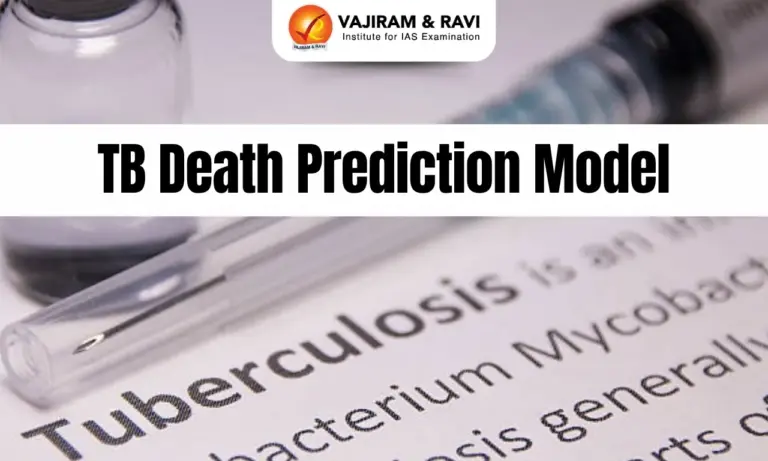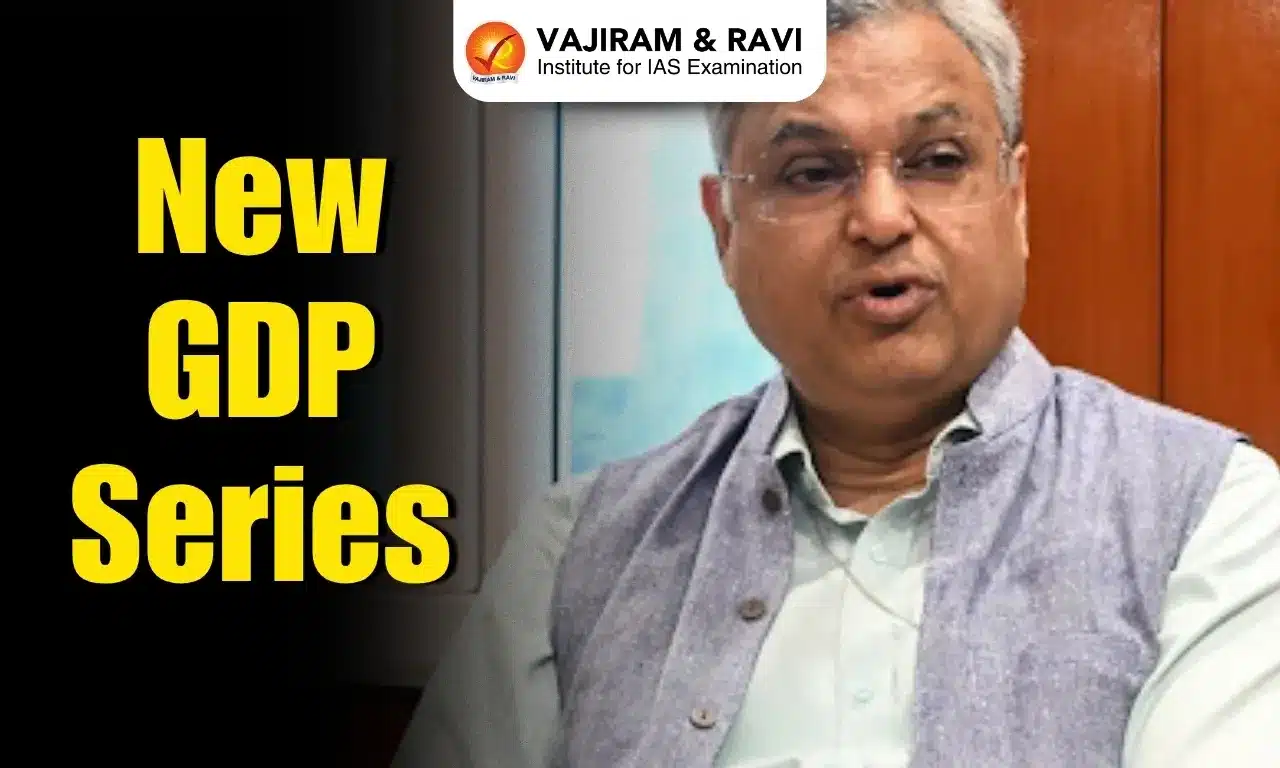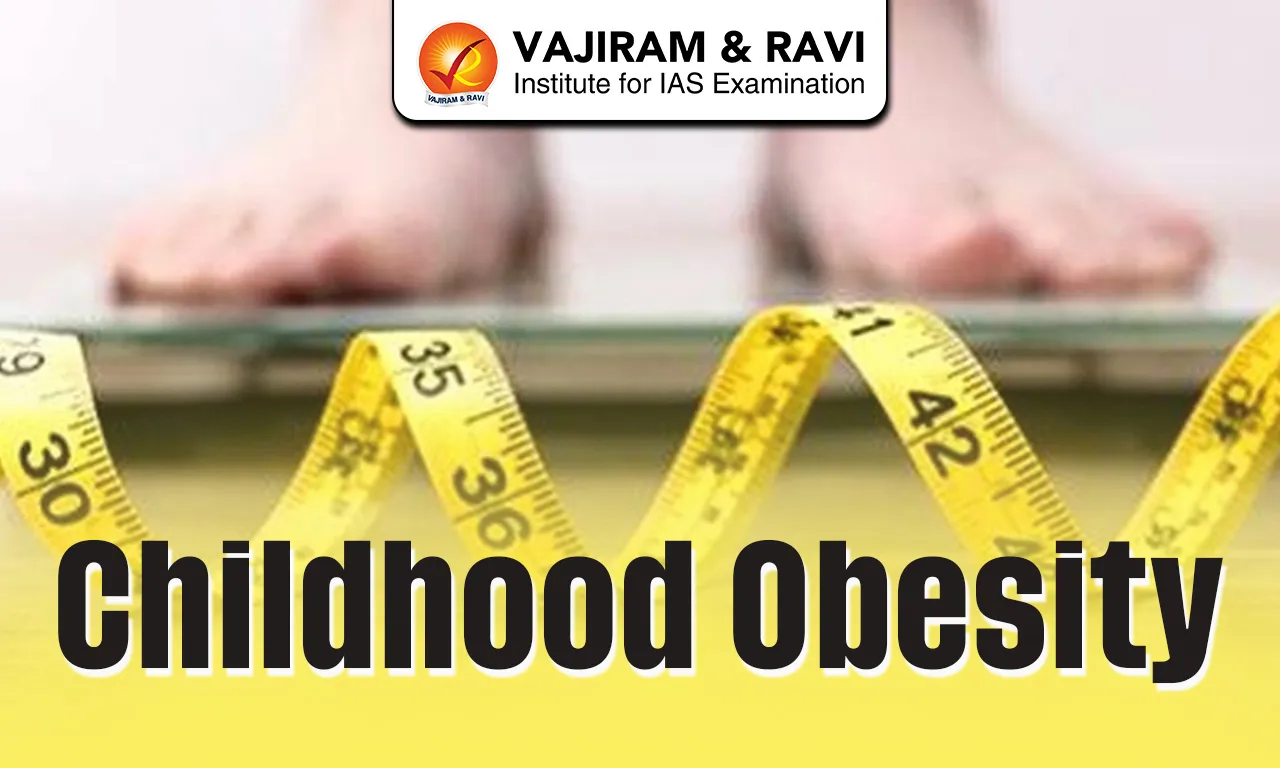TB Death Prediction Model Latest News
Tamil Nadu has become the first Indian state to integrate a TB death prediction model into its State TB Elimination Programme, enabling early identification and hospitalisation of high-risk patients to reduce tuberculosis-related mortality.
Introduction
- In a landmark step towards eliminating tuberculosis (TB), Tamil Nadu has become the first state in India to deploy a predictive model that estimates the likelihood of death in TB patients.
- Integrated with the state’s existing digital triage platform TB SeWA, this model is designed to enable faster hospital admissions for severely ill patients, ultimately reducing TB-related mortality.
- This innovation is a collaborative outcome of the Indian Council of Medical Research’s National Institute of Epidemiology (ICMR-NIE) and the Tamil Nadu State Health Department under the larger framework of Tamil Nadu Kasanoi Erappila Thittam (TN-KET).
The Predictive Model and How It Works
- The newly launched predictive model uses five clinical indicators at the time of TB diagnosis:
- Body Mass Index (BMI)
- Presence of pedal oedema (swelling of feet)
- Respiratory rate
- Oxygen saturation levels
- Ability to stand without support
- Healthcare workers input these variables into the TB SeWA application. Based on this input, the model calculates the probability of death ranging from 10% to 50% for severely ill patients.
- For those not flagged as severely ill, the predicted mortality risk remains between 1% and 4%.
- This sharp differentiation in risk estimation helps frontline healthcare staff prioritise admissions and initiate early treatment, which is especially crucial given that over 70% of TB deaths occur within the first two months of treatment.
Significance of the Integration
- Prior to this model, Tamil Nadu’s TB SeWA system helped identify severely ill patients using the five indicators, enabling timely inpatient care.
- The integration of a quantified probability of death now offers an objective assessment of risk, improving decision-making at the primary health level.
- The team at ICMR-NIE noted that while the average time from diagnosis to hospital admission is one day in Tamil Nadu, about 25% of severely ill patients face delays of 3–6 days. The new model is expected to reduce such delays.
Development and Validation of the Model
- The model was developed using data from nearly 56,000 TB patients diagnosed across Tamil Nadu between July 2022 and June 2023.
- It was observed that 10–15% of adults diagnosed with TB were classified as severely ill at the time of diagnosis.
- The model’s validation has demonstrated that the five triage variables used in TN-KET are just as predictive of mortality risk as the comprehensive baseline variables in the national Ni-kshay TB portal.
- However, Ni-kshay variables typically take up to three weeks to populate, too late to act upon for high-risk patients. In contrast, the TN-KET system captures triage data within a day, ensuring faster action.
Broader Public Health Impact
- All 2,800 public health facilities in Tamil Nadu, from Primary Health Centres to Medical Colleges, currently use the TB SeWA application. The model supports:
- Real-time triaging
- Objective risk stratification
- Timely hospital referrals
- The success of TN-KET and its associated tools has already contributed to reduced loss in the TB care cascade across two-thirds of Tamil Nadu’s districts.
- This innovation serves as a replicable model for other Indian states, where early TB deaths remain a significant challenge despite free diagnosis and treatment.
Global and National Context
- According to the World Health Organisation, TB remains one of the top causes of death globally.
- India bears the highest burden of TB in the world, with two deaths every three minutes.
- A recent study titled “Time to Death and Associated Factors among Tuberculosis Patients in Dangila Woreda, Ethiopia” identifies old age, low body weight, and TB/HIV co-infection as significant predictors of early mortality.
- Tamil Nadu’s model, by addressing similar risk factors early, aligns with global recommendations for reducing TB deaths.
Last updated on March, 2026
→ UPSC Notification 2026 is now out on the official website at upsconline.nic.in.
→ UPSC IFoS Notification 2026 is now out on the official website at upsconline.nic.in.
→ UPSC Calendar 2026 has been released.
→ UPSC Final Result 2025 is expected to be released soon.
→ Check out the latest UPSC Syllabus 2026 here.
→ Join Vajiram & Ravi’s Interview Guidance Programme for expert help to crack your final UPSC stage.
→ UPSC Mains Result 2025 is now out.
→ UPSC Prelims 2026 will be conducted on 24th May, 2026 & UPSC Mains 2026 will be conducted on 21st August 2026.
→ The UPSC Selection Process is of 3 stages-Prelims, Mains and Interview.
→ Prepare effectively with Vajiram & Ravi’s UPSC Prelims Test Series 2026 featuring full-length mock tests, detailed solutions, and performance analysis.
→ Enroll in Vajiram & Ravi’s UPSC Mains Test Series 2026 for structured answer writing practice, expert evaluation, and exam-oriented feedback.
→ Join Vajiram & Ravi’s Best UPSC Mentorship Program for personalized guidance, strategy planning, and one-to-one support from experienced mentors.
→ Check UPSC Marksheet 2024 Here.
→ UPSC Toppers List 2024 is released now. Shakti Dubey is UPSC AIR 1 2024 Topper.
→ Also check Best UPSC Coaching in India
TB Death Prediction Mode FAQs
Q1. What is the TB death prediction model implemented by Tamil Nadu?+
Q2. How does this model help in TB care?+
Q3. What platform has the model been integrated with?+
Q4. How accurate is this model compared to national systems like Ni-kshay?+
Q5. Why is this model significant for India?+
Tags: mains articles tb death prediction model upsc current affairs upsc mains current affairs


















